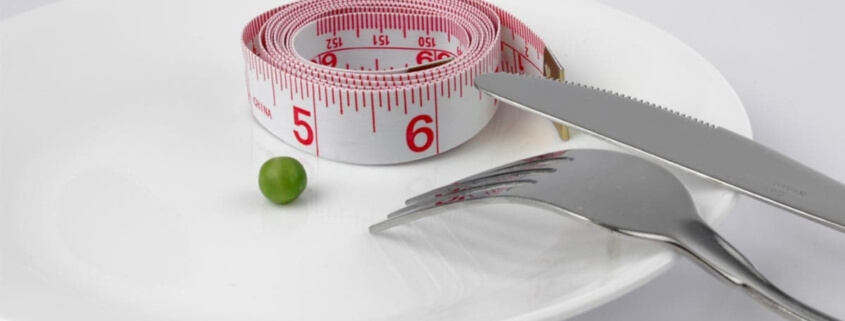Skip the Fad Diets! They’re Ineffective and Unhealthy
So often I hear patients and people I know talk about the latest fad diet they’re trying out. They don’t call it a fad diet, but that’s usually what it is.
I understand how people eager to lose weight can get caught up in hype. Fad diets lure people in with promises of fast, effortless weight loss, usually revolving around some “trick” like eliminating certain foods, only eating certain foods, consuming some incredible “fat-burning” ingredient, and so on.
It sounds too good to be true because it is. Always.
Characteristics of Fad Diets
Examples of recent popular fad diets include the Paleo diet, the raw food diet, Atkins and other low-carb diets, high-protein diets, liquid diets, eating for your blood type, the alkaline diet, lemon juice cleanses, the grapefruit diet, the cabbage diet, diets calling for special combinations of foods, the five-bite diet, and the HCG diet.
These are just some of them—and there are even crazier, downright dangerous ones like giving yourself tapeworms or eating cotton balls soaked in fruit juice. No! It’s impossible to provide an exhaustive list of fad diets out there, plus new ones always pop up.
You can generally identify fad diets by whether they have one or more of the following characteristics:
- They promise rapid weight loss; depending on how overweight you are, the standard recommendation is that losing 1 to 2 pounds per week is the limit of safe weight loss
- They promise easy weight loss; healthy, lasting weight loss takes determination, self-control, exercise, and hard work—it isn’t easy
- They make you eliminate one or more food groups or eat mostly one particular food or food group
- They refer to “fat-burning” properties; no food, drink, or supplement just magically burns fat
- They require that you buy a specific product
- They aren’t backed up by science, or they claim to work based on majorly over-simplified conclusions from complex nutritional science principles
Fad Diet Results Are Only Temporary
As you can probably guess from the above list of characteristics, fad diets simply don’t work. At best, they may cause you to lose some weight at first, but it always comes back.
First, many fad diets trigger a quick loss of water weight. Low-carb diets, for example, are notorious for this. You can drop maybe 5 or 7 pounds of water weight in just a day or two. People get really excited by that.
But guess what? All that water weight comes back immediately when you introduce more carbs, which you have to do eventually, because low-carb diets are unhealthy and unsustainable. Not to mention that you only get health benefits from shedding excess fat—not some water—even if it feels good to see the lower number on the scale.
Even the fat you lose on a fad diet comes back as soon as you go off the diet, though. Sure, if you only eat 500 calories of cabbage (or only 500 calories of anything) every day, you’ll lose weight. Putting aside how unhealthy that is, think ahead to when you go off the diet. Because I know you don’t plan on only eating cabbage for the rest of your life. When the diet ends, your calorie intake goes back to where it was, and so does your weight.
Fad Diets Are Unsustainable
Speaking of eating nothing but cabbage for the rest of your life, fad diets are invariably unsustainable. Most are profoundly boring and demotivating. They are often so inflexible that it’s impossible to eat out or have any spontaneity in your life. And they typically leave you feeling awful.
That’s not how weight loss should be. Yes, it takes some sacrifice and isn’t always pleasant, but ultimately, you are trying to make a change for the better. It should be a positive, uplifting experience, learning to embrace healthier foods and habits. It should not be an endless stream of misery.
The only way to lose weight and keep it off is to enact positive lifestyle changes. Adopting smarter eating habits and adding exercise into your regular routine is the one and only effective way to successfully manage weight on an ongoing basis. Period. And this will have you feeling better and better about yourself.
Health Dangers of Fad Diets
In addition to everything else I’ve talked about here, there are lots of health risks associated with most fad diets. Here are just some:
- Many put you at risk for nutritional deficiencies
- They can seriously stress your heart, liver, kidneys, digestive system or other organs
- They can increase your risk of developing numerous different acute and chronic conditions, such as kidney stones, gout, hypertension, certain cancers, heart disease, osteoporosis, and others
- They can significantly disrupt your energy production, sleep, ability to concentrate, and other aspects of physical and mental performance
Healthy Lifestyle Changes for Weight Loss
Again, because it bears repeating: Making healthy lifestyle changes is the only way to lose weight and keep it off. That means choosing nutritionally dense whole foods over junk and processed foods, eating sensible portions, and getting plenty of physical activity.
Temporary changes only yield temporary results; permanent changes yield permanent results. For the reasons above, fad diets aren’t permanent solutions. Be discerning and patient, and you’ll achieve your goals!



